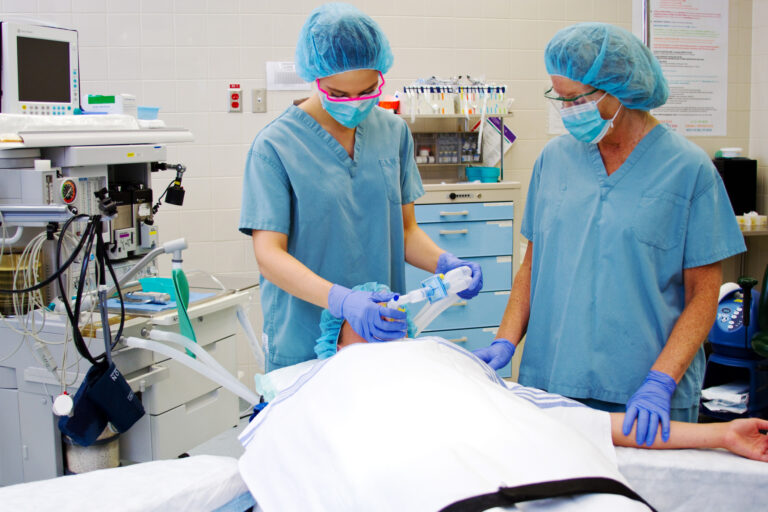How Nurses Make Surgery Safer and Recovery Smoother for Patients
Nurses play a vital role in surgery by ensuring safety, preventing complications, educating patients, and supporting recovery. Image for illustration only. People depicted are models.
Post-operative recovery refers to the period following surgery during which the body heals and regains normal function. This phase varies widely depending on the type and complexity of the surgery, as well as the individual’s overall health. Effective recovery is a critical component of successful surgical outcomes, minimising complications and promoting the patient’s return to daily activities.
Initial Recovery Period
The immediate post-operative period typically takes place in a recovery room, where medical staff closely monitor the patient. Vital signs such as heart rate, blood pressure, oxygen levels, and pain levels are assessed regularly. The patient may still be under the influence of anaesthesia, and care is taken to manage any adverse reactions, such as nausea or respiratory issues.
Pain management is a key focus during this time. Patients are usually prescribed analgesics to control discomfort, allowing them to rest and begin the healing process. Depending on the procedure, the patient may also receive intravenous fluids, antibiotics, or anticoagulants to prevent infection or clot formation.
Rehabilitation and Long-Term Recovery
Once the immediate effects of surgery subside, rehabilitation begins. This stage involves a combination of physical rest, gradual activity resumption, and possibly physiotherapy. The duration of this phase can range from a few days to several months, depending on the surgery and the patient’s condition.
Patients are often advised to follow specific post-operative instructions. These may include wound care to prevent infection, dietary modifications to support healing, and activity restrictions to avoid straining the surgical site. Adherence to these guidelines significantly impacts recovery speed and quality.
For more extensive surgeries, such as joint replacements or abdominal procedures, physiotherapy may be recommended. This helps restore mobility, strength, and function while reducing the risk of complications such as blood clots or muscle weakness. Patients recovering from cardiovascular or thoracic surgeries may also undergo cardiac rehabilitation, which includes monitored exercise and lifestyle advice.
Psychological and Emotional Aspects
Recovery is not solely physical; emotional and psychological well-being play a vital role. It is common for patients to experience anxiety, mood changes, or even depression after surgery. Support from family, friends, and healthcare professionals is crucial in managing these challenges.
Encouraging open communication about concerns and seeking professional support when needed can help alleviate emotional distress. Mindfulness techniques, counselling, and peer support groups are also valuable resources for patients during recovery.
Monitoring and Follow-Up
Regular follow-up appointments are essential to monitor progress, ensure proper wound healing, and address any emerging issues. Early detection of complications, such as infections or poor wound healing, can prevent more severe problems.
In conclusion, post-operative recovery is a multifaceted process involving physical healing, emotional adjustment, and proactive management. Proper adherence to medical advice and support from healthcare professionals is vital for optimal outcomes.
home » Post-Operative Recovery
Nurses play a vital role in surgery by ensuring safety, preventing complications, educating patients, and supporting recovery. Image for illustration only. People depicted are models.
